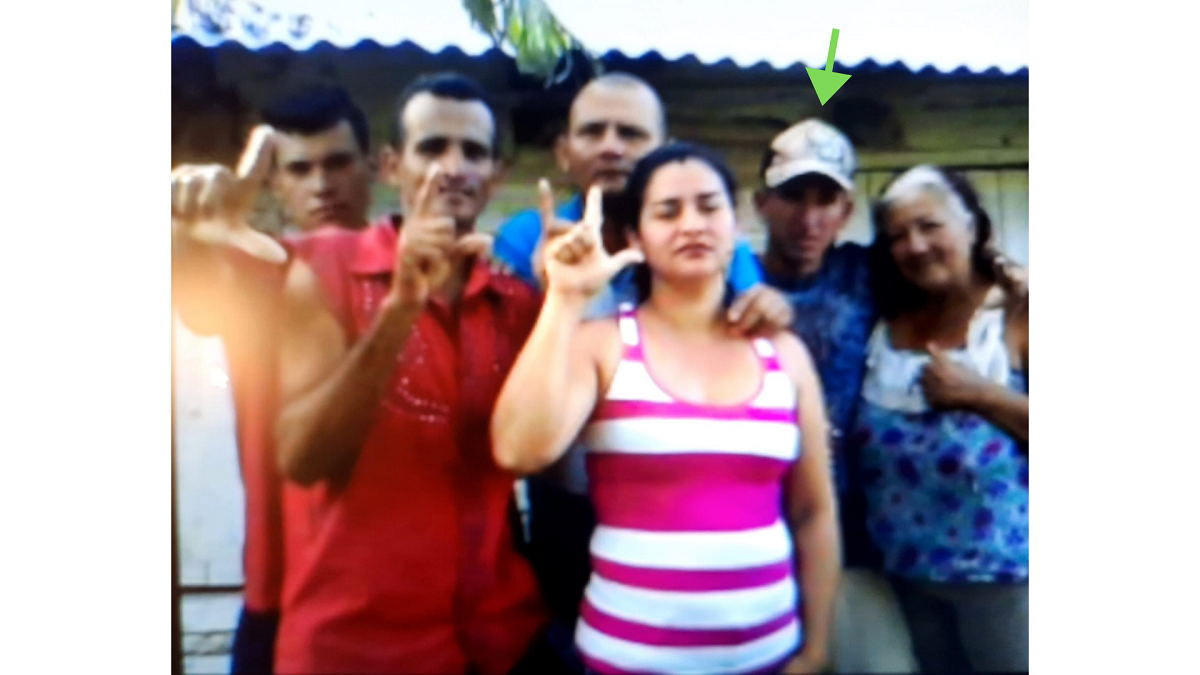Race and Equality denounces the arbitrary detention of Cuban activist Yandier García Labrada and expresses concern for his health in prison
Washington, D.C.; November 6, 2020.- The International Institute on Race, Equality and Human Rights (Race and Equality) denounces the arbitrary detention of Cuban activist Yandier García Labrada, a member of […]

Washington, D.C.; November 6, 2020.- The International Institute on Race, Equality and Human Rights (Race and Equality) denounces the arbitrary detention of Cuban activist Yandier García Labrada, a member of the Christian Liberation Movement (MCL). Mr. García has been deprived of his liberty since October 6th and is being held at “El Típico” prison in Las Tunas province. In prison, Mr. García’s health has worsened considerably, partly due to a serious physical assault for which he has not received medical attention.
Yandier’s family was officially informed of his detention on October 27th, when his brother Irán Almaguer Labrada went to the Las Tunas provincial police station to request information. The official in charge of the case, who refused to give his name, revealed only that Yandier was being held in “El Típico” under the charges of “contempt” and “public disorder” and that no date had been set for his trial.
On November 3rd, Yandier’s other brother Yoanny Almaguer Labrada was finally allowed to see him and spoke with him for around 20 minutes. Yoanny reported that Yandier could not move his left arm and showed him bruises on his ribs, shoulder, and arms. He also reported that Yandier had not received any medical attention and that prison officials would not allow the family to give him the aerosol spray that he needs to control his frequent asthma attacks.
Until the meeting with Yoanny on November 3rd, Yandier had not been allowed to have either phone calls or in-person visits. The day after the meeting, Irán was detained for five hours in Buenaventura as he traveled from Manatí to San Andrés. The security official who detained Irán gave his name as Alberto and demanded that Irán “stop your opposition” if he wanted Yandier to be freed.
Facts of the case
According to information from Yandier’s brothers and MCL members, Yandier was seized around 3:00pm on Tuesday, October 6 outside of a grocery store in Manatí, where he resides. Yandier was in line to buy groceries and began to complain vocally about the market’s disorganization and poor service, leading other people to join in.
The market’s staff called the police to deal with this impromptu protest. When the police arrived, they arrested Yandier and three others, who were released later that day. Witnesses told the MCL and Yandier’s family that the arrest was “rough,” with four or five officers stuffing Yandier head-first into a police car.
Dr. Eduardo Cardet, national coordinator of the MCL, told Race and Equality that “the unjust and arbitrary incarceration of Yandier García Labrada is part of a systematic campaign of repression against members of the MCL aimed at suppressing our activism on behalf of human rights.” According to Dr. Cardet, threats and acts of harassments against MCL members are common. Race and Equality denounced such attacks in August.
“It is very concerning that Yandier’s family could not contact him or find out his status. The MCL demands the immediate liberation of Yandier García,” added Dr. Cardet.
Race and Equality calls for compliance with the rights of persons deprived of liberty
Race and Equality shares the family’s concern for Yandier’s worsening health and demands that the Cuban State protect his rights to life, personal integrity, health, and well-being, including by providing him access to adequate and timely healthcare. We also call on the government to provide him with the means to communicate with his family regularly. These measures are called for by international human rights instruments protecting the rights of those deprived of liberty, including the Principles and Best Practices on the Protection of Persons Deprived of Liberty in the Americas, adopted by the Inter-American Commission on Human Rights (IAHCR) in 2008, and the United Nations Standard Minimum Rules for the Treatment of Prisoners, also known as the Nelson Mandela Rules.

